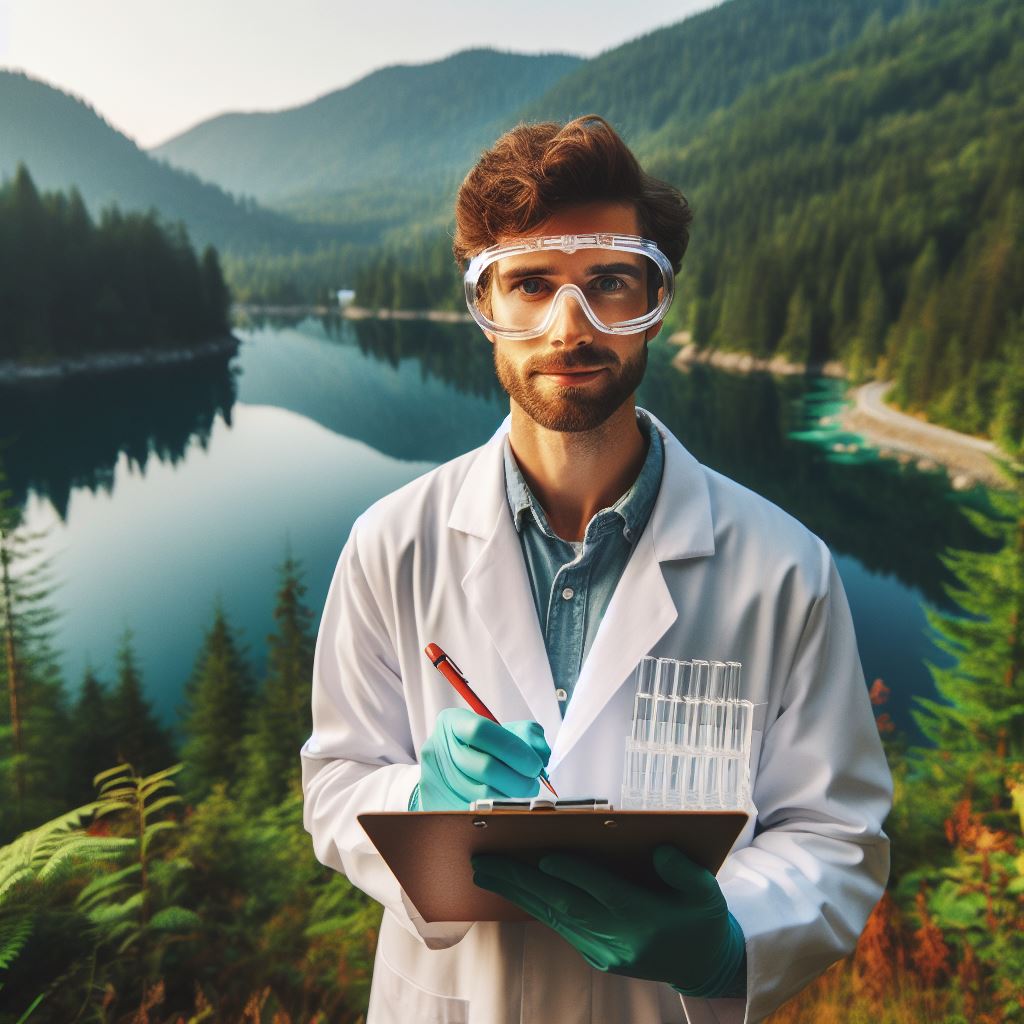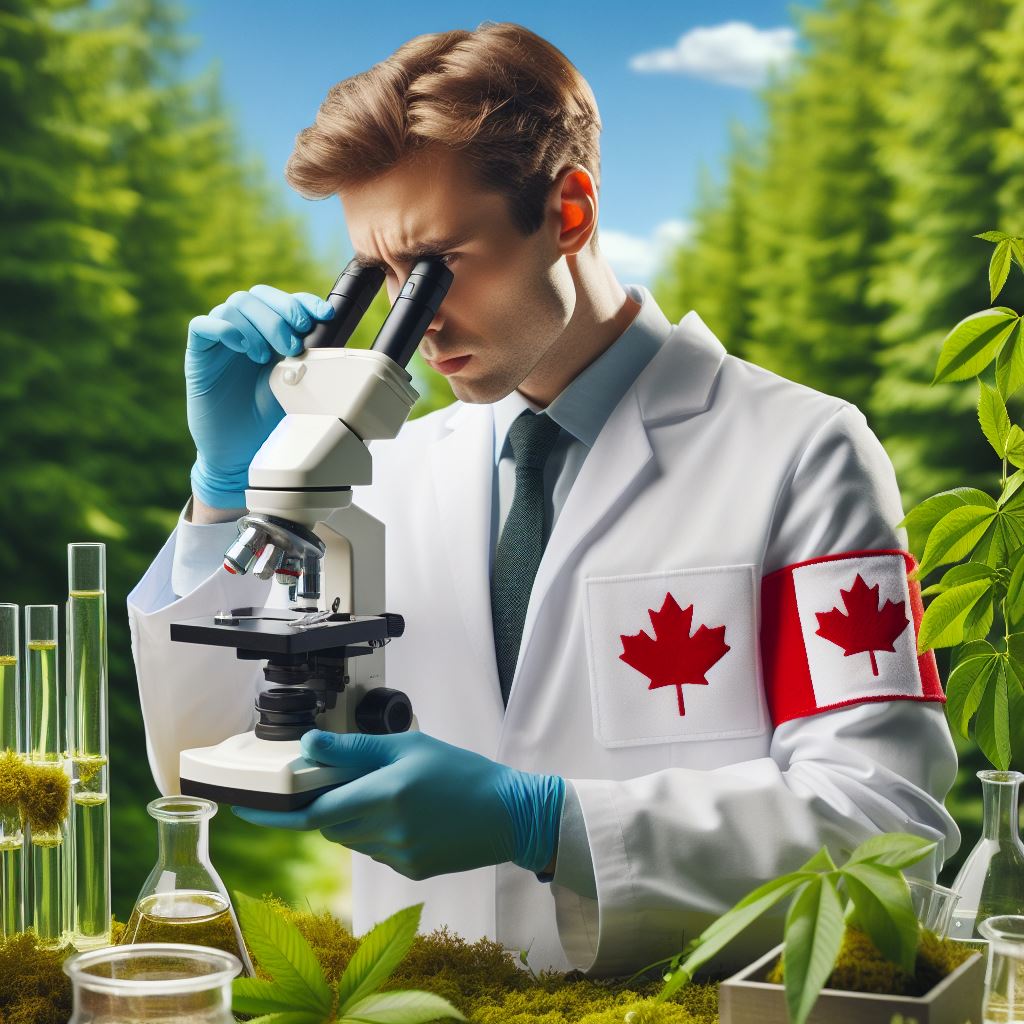Introduction to Environmental Science Degrees
Definition and importance of the environmental science field
Environmental science is the study of the environment and how humans impact it. It is crucial to understanding and solving environmental issues.
Overview of the increasing demand for environmental science degrees.
With growing concern for the environment, there is a rising demand for professionals with environmental science degrees. Job opportunities are expanding in various sectors.
Purpose of the blog post to inform interested individuals about what to expect from environmental science degrees.
This blog post aims to provide a comprehensive understanding of environmental science degrees. It will cover key aspects such as coursework, career options, and potential salary ranges.
Available Environmental Science Degrees
When pursuing a degree in environmental science, there are various options available, catering to different interests and career goals.
Bachelor’s degree options
- Bachelor of Science in Environmental Science: This degree provides a comprehensive understanding of scientific principles related to the environment, including ecology, conservation, and pollution management.
- Bachelor of Arts in Environmental Studies: This degree focuses on the social, political, and economic aspects of environmental issues, exploring solutions from a broader perspective.
Master’s degree options
- Master of Science in Environmental Science: This program delves deeper into the scientific aspects of environmental science, allowing students to specialize in areas such as environmental chemistry, toxicology, or climatology.
- Master of Environmental Management: This degree combines scientific knowledge with business and policy skills, preparing students for careers in environmental consulting, sustainability, or resource management.
PhD options and research-oriented programs
- Doctor of Philosophy in Environmental Science: This advanced degree emphasizes original research and the development of expertise in a specific area of environmental science, making graduates highly qualified for academic and research positions.
- Doctor of Environmental Studies: This interdisciplinary program allows students to explore various aspects of environmental studies, including social sciences, natural sciences, and humanities, through rigorous research and critical analysis.
Overall, earning a degree in environmental science equips individuals with the necessary knowledge and skills to address pressing environmental challenges.
Whether at the bachelor’s, master’s, or PhD level, these programs provide a solid foundation for careers in environmental research, policy-making, advocacy, or consulting.
Read: Top Canadian Eco-Science Breakthroughs in 2024
Curriculum and Coursework
In an environmental science degree program, you can expect a curriculum that provides a comprehensive understanding of core environmental science concepts. The coursework covers a wide range of topics related to the environment and its sustainability.
Introduction to core environmental science concepts
- Study of natural systems and their interactions: The program begins with an introduction to the study of natural systems and their interactions. This foundation allows students to grasp the complexity of the environment and its interconnectedness.
- Focus on understanding ecological principles: The focus is on understanding ecological principles and their applications in real-world scenarios.
Common coursework topics
- Environmental policy and management: Throughout the program, students delve deeper into specific areas of environmental science. They explore environmental policy and management, learning about the regulations and strategies implemented to protect the environment.
- Climate change and sustainability: They also study climate change and sustainability, examining the causes and consequences of global warming and exploring potential solutions.
- Environmental health and toxicology: Additionally, the coursework includes an exploration of environmental health and toxicology, addressing the impacts of pollutants on human health
- Conservation biology and biodiversity: Conservation biology and biodiversity are also important topics, as students learn about the preservation of species and ecosystems.
Fieldwork and laboratory experiences
- Importance of hands-on learning in environmental science: In an environmental science program, hands-on learning is crucial. Fieldwork and laboratory experiences provide students with practical skills and a deeper understanding of environmental processes. These experiences allow students to apply their theoretical knowledge in real-world settings and gain valuable insights.
- Examples of fieldwork and laboratory activities: Fieldwork involves conducting research and collecting data in various natural environments. For example, students may participate in biodiversity surveys to assess the number of species in a specific ecosystem. They may also study water quality by sampling rivers or lakes and analyzing the collected samples.
Laboratory activities focus on analysis and experimentation. Students learn to use specialized equipment and techniques to measure and quantify environmental parameters.
They may analyze soil samples to assess their fertility and composition or conduct toxicity tests to determine the effects of pollutants on organisms.
Overall, the combination of classroom lectures, fieldwork, and laboratory experiences provides a well-rounded education in environmental science.
Students develop a deep understanding of environmental issues and learn the practical skills necessary for a career in this field.
Read: A Day in the Life of an Environmental Scientist
Career Opportunities and Job Prospects
Overview of potential career paths for environmental science graduates
Environmental science graduates have a wide range of career opportunities available to them. They can work in various sectors, including government agencies, non-profit organizations, consulting firms, research institutions, and private companies.
Some common career paths for environmental science graduates include:
- Environmental consultant
- Sustainability coordinator
- Conservation scientist
- Environmental scientist
- Wildlife biologist
- Environmental educator
- Climate change analyst
These careers allow individuals to make a positive impact on the environment and contribute to solving environmental issues.
Employment sectors and industries where environmental scientists are in demand
Environmental scientists are in high demand in various sectors and industries, including:
- Government agencies: Environmental science graduates can work for federal, state, or local governments in departments such as the Environmental Protection Agency, Department of Natural Resources, or Department of Environmental Conservation.
- Non-profit organizations: Many non-profit organizations focus on environmental issues and hire environmental science graduates to work on projects related to conservation, sustainability, and environmental advocacy.
- Consulting firms: Environmental consulting firms provide services to businesses and organizations, helping them comply with environmental regulations, conduct environmental assessments, and develop sustainability strategies.
- Research institutions: Environmental science graduates can pursue careers in research institutions, where they can conduct scientific research, analyze data, and contribute to the development of environmental knowledge and solutions.
- Private companies: Private companies in industries such as energy, manufacturing, and agriculture often hire environmental scientists to help them with environmental compliance, sustainability initiatives, and environmental impact assessments.
These employment sectors and industries offer diverse opportunities for environmental science graduates to apply their knowledge and skills.
Examples of job titles and responsibilities
- Environmental consultant: Conduct environmental assessments, advise clients on environmental regulations, and develop strategies for sustainable practices.
- Sustainability coordinator: Develop and implement sustainability initiatives, monitor environmental performance, and promote sustainable practices within an organization.
- Conservation scientist: Evaluate natural resources, develop conservation plans, and conduct research to protect and restore ecosystems.
These are just a few examples of the job titles and responsibilities that environmental science graduates can have. The field offers a wide range of opportunities for specialization and career growth.
Salary expectations and factors influencing earning potential
The salary expectations for environmental science graduates can vary depending on factors such as education level, experience, location, and job position.
According to the Bureau of Labor Statistics, the median annual wage for environmental scientists and specialists was $71,360 in May 2020. However, salaries can range from around $44,800 to over $126,100, depending on the factors mentioned above.
Higher education levels, such as a master’s or doctoral degree, can lead to higher-paying positions and more opportunities for advancement. Experience in the field and specialized skills, such as data analysis or GIS proficiency, can also enhance earning potential.
Additionally, the location of employment can affect salary expectations. Areas with high costs of living or a high demand for environmental scientists may offer higher salaries to attract and retain talent.
In summary, environmental science graduates have a range of career opportunities in various sectors and industries. Job titles and responsibilities can vary, but all offer the chance to make a positive impact on the environment.
Salary expectations depend on multiple factors, including education, experience, location, and specialization.
Unlock Your Career Potential
Visualize a clear path to success with our tailored Career Consulting service. Personalized insights in just 1-3 days.
Get StartedRead: Future of Chemistry Jobs in Canada: Expert Predictions

Skills and Knowledge Gained
Development of analytical and problem-solving skills
Environmental science degrees provide students with the opportunity to develop strong analytical and problem-solving skills.
Through coursework and hands-on experiences, students learn how to identify and analyze environmental issues, evaluate different solutions, and propose effective strategies.
Understanding of scientific research methodologies
One of the key aspects of environmental science degrees is gaining a deep understanding of scientific research methodologies. Students learn how to design and conduct experiments, collect and analyze data, and draw conclusions based on empirical evidence.
Proficiency in data collection and analysis
Proficiency in data collection and analysis is crucial in the field of environmental science.
Students learn various data collection techniques, such as field sampling and remote sensing, and gain proficiency in statistical analysis using software tools like Excel and statistical programming languages like R.
Effective communication and collaboration skills
Environmental scientists often work in teams and collaborate with different stakeholders, including policymakers, scientists from other disciplines, and the general public.
As part of their degree program, students develop effective communication skills to convey scientific concepts to diverse audiences and collaborate effectively with others.
Familiarity with environmental regulations and policies
Environmental science degrees provide students with a solid understanding of environmental regulations and policies at local, national, and international levels.
Students learn about the legal frameworks governing environmental protection and gain familiarity with key environmental policies and their implications for decision-making.
Essentially, pursuing a degree in environmental science offers a wide range of benefits. Students develop analytical and problem-solving skills, gain a solid understanding of scientific research methodologies, and become proficient in data collection and analysis.
Additionally, they develop effective communication and collaboration skills and gain familiarity with environmental regulations and policies.
These skills and knowledge will prepare graduates for successful careers in various sectors, including environmental consulting, research, government, and non-profit organizations.
Read: Chemists’ Role in Canada’s Healthcare Evolution
Internship and Networking Opportunities
Importance of internships in environmental science programs
- Internships provide practical experience and hands-on learning opportunities in the field of environmental science.
- They allow students to apply their theoretical knowledge to real-world scenarios.
- Internships also help students explore different career paths and specialties within the environmental science field.
- Employers often value internship experiences when hiring, as it demonstrates a candidate’s commitment and practical skills.
- Internships can enhance a student’s resume and increase their chances of securing a job after graduation.
Potential benefits of networking during studies
- Networking allows students to connect with professionals in the environmental science industry, building valuable relationships.
- Through networking events and conferences, students can gain insights into current industry trends and practices.
- Networking provides opportunities for mentorship, where experienced professionals can guide and advise students.
- It opens doors to potential job offers, as many positions are filled through word-of-mouth referrals.
- Networking helps students stay updated with job opportunities and developments in the environmental science field.
Examples of organizations and resources for internships and networking
- Environmental Protection Agency (EPA): The EPA offers internships and networking opportunities for students pursuing environmental science degrees.
- World Wildlife Fund (WWF): WWF provides internships in various fields related to environmental conservation.
- Greenpeace: Greenpeace offers internships in areas like climate change, oceans, and biodiversity.
- Professional Associations: Joining associations like the Ecological Society of America or the Society of Environmental Toxicology and Chemistry can provide networking opportunities.
- Career Services Offices: Universities often have career service offices that assist students in finding internships and networking events.
- Online Platforms: Websites like Indeed, LinkedIn, and Glassdoor list internship and job opportunities in the environmental science field.
Generally, internships play a crucial role in environmental science programs as they enable students to gain practical experience, explore career paths, and enhance their job prospects.
Networking during studies offers benefits such as industry connections, knowledge exchange, and potential job offers.
Numerous organizations and resources provide internships and networking opportunities, including governmental agencies, non-profit organizations, professional associations, and online platforms.
Therefore, students pursuing environmental science degrees should actively seek internships and networking events to maximize their educational experience and prepare for future career success.
Further Education and Specialization
Pursuing advanced degrees in environmental science
Once you have completed your undergraduate degree in environmental science, you may choose to further your education by pursuing an advanced degree. This can help expand your knowledge and expertise in a specific area of environmental science.
Graduate programs in environmental science offer advanced coursework and research opportunities that allow you to delve deeper into the field.
These programs typically require a thesis or research project, which allows you to contribute to the existing body of knowledge in environmental science.
Earning a master’s or doctoral degree in environmental science can open up doors to higher-level positions in academia, research institutions, government agencies, and private industries.
Specializations within the field
Within the field of environmental science, there are various specializations that you can choose to focus on. These specializations allow you to specialize in a specific aspect of environmental science that aligns with your interests and career goals.
- Environmental policy and management: This specialization focuses on the development and implementation of policies and strategies to address environmental issues. It involves studying environmental laws, regulations, and management techniques to effectively manage natural resources and mitigate environmental impacts.
- Water resources and hydrology: This specialization focuses on the study of water resources, including their quantity, quality, and distribution. It includes studying water management, hydrological modeling, and water conservation techniques to ensure sustainable use of water resources.
- Environmental engineering: This specialization combines principles of engineering and environmental science to address environmental challenges. It involves designing and implementing solutions for pollution prevention and control, waste management, and sustainable infrastructure development.
By specializing in a specific area, you can become an expert in that field and contribute to finding solutions for complex environmental issues.
Continuous learning and professional development opportunities
Environmental science is a rapidly evolving field, and it is important to stay updated with the latest research, technologies, and practices.
Continuous learning and professional development opportunities are crucial to enhance your knowledge and skills in environmental science.
There are various ways to engage in continuous learning and professional development as an environmental scientist. You can attend conferences, workshops, and seminars to learn about the latest advancements in the field.
Networking with other professionals and researchers can also provide valuable insights and opportunities for collaboration.
Additionally, joining professional organizations, such as the Environmental and Water Resources Institute (EWRI) or the Association of Environmental Professionals (AEP), can provide access to resources, publications, and networking events specifically tailored to environmental science professionals.
Continuing education courses and certifications can also help you expand your skill set and stay up to date with emerging trends and technologies in the field. These opportunities can enhance your credibility and marketability as an environmental scientist.
Overall, further education and specialization in environmental science, along with continuous learning and professional development, are essential for a successful and fulfilling career in this dynamic and important field.
Conclusion
Recap of the main points discussed in the blog post
In the end, this blog post has covered several key points regarding environmental science degrees.
Environmental Science Degrees provide a comprehensive understanding of ecosystems, climate, and sustainability. Expect interdisciplinary coursework, fieldwork, and research opportunities.
Graduates pursue careers in environmental consulting, conservation, policy-making, and more, contributing to a sustainable future.
Encouragement for individuals interested in environmental science degrees
For those interested in pursuing environmental science degrees, this post encourages you to take the leap.
Embrace the transformative journey of pursuing Environmental Science Degrees. Dive into diverse courses, engage in hands-on research, and explore real-world applications.
Your passion for environmental stewardship can drive positive change. Be a catalyst for a sustainable future, contributing to global well-being through the knowledge gained in your educational pursuit.
Final thoughts and potential next steps for readers
Lastly, environmental science degrees offer a bright future and diverse career opportunities. Consider exploring internships or graduate school.




